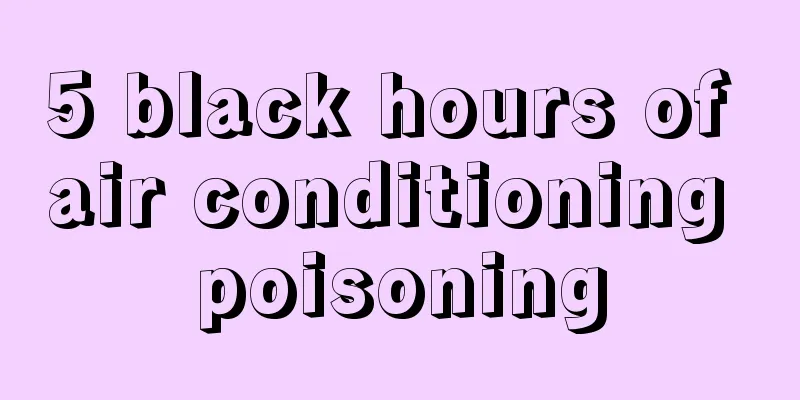Five big taboos to know when taking a nap in summer

|
Most people have the habit of taking naps in the summer, but the quality of sleep is not very high. There are many reasons for this phenomenon, which may be related to your sleeping environment, time, sleeping posture, etc. Today, the editor will take you to understand what are the taboos of taking naps in the summer? How can you sleep well?
Most people have the habit of taking a nap in summer, but the quality of sleep is not very high The temperature is high in summer, and if you don’t pay attention to your lunch break, it’s easy to take a nap in the afternoon. The length of the lunch break, sleeping posture and other considerations will affect the comfort of waking up. So how can we sleep better? What are the precautions for taking a nap in summer? Taking a nap after lunch can help your body adjust in time, which is beneficial to your health, work and study. Because the temperature is high at noon in summer, during the process of cooling down and sweating, the skin capillaries expand, the blood distribution in the body is unbalanced, a large amount of blood remains on the body surface, and the blood supply to the brain is relatively insufficient. After a morning of intense work and study, people generally feel tired and listless. If you take a nap after lunch properly and adjust your body in time, it will be very beneficial to your health, work and study. However, if the lunch break is not taken properly, it will backfire. The following points should be noted during summer lunch break.
Note 1 for naps: The longer the nap, the better The ideal nap time is half an hour to one hour. If you sleep for too long, you will enter a deep sleep and feel very uncomfortable when you wake up. If you encounter this situation, get up and move around a bit, wash your face with cold water, and drink a glass of water, and the discomfort will quickly disappear.
Note 2 for taking a nap: Don’t take a nap casually. Don't just choose a place to sleep just because the nap time is short, especially don't sleep in the corridor, under the shade of trees, on the grass, on the concrete floor, or in a draft or wind vent. Because the body's temperature regulation center function declines during sleep, the patient may feel uncomfortable after waking up at the mildest, or catch a cold at the worst.
Nap precautions three: Don’t sleep sitting or lying down Due to limited conditions, many people take naps while sitting or lying on the edge of the table, which is very detrimental to their health in the long run. Taking a nap on the edge of the table will compress the chest, affect breathing, and make the arms numb, and it will not achieve the purpose of allowing the body to adjust and rest.
Note 4 on taking a nap: Not everyone needs a nap. For people who are in good health and get enough sleep at night, skipping a nap usually does not affect their health. However, a nap is very necessary for people who engage in mental work, college, middle and primary school students, the frail and sick or the elderly.
Notes on naps 5: Do not expose your chest during the day and do not cool your back at night In summer, the scorching sun and the heat are unbearable, so many male friends are accustomed to sleeping without clothes, thinking that this is the coolest way. In fact, this practice is very harmful to the body. Although the weather is hot, you should not seek too much coolness, especially your chest and back should not be exposed. Therefore, it is best to wear pajamas when sleeping in summer, which can absorb sweat well and prevent cold at the same time. After people fall asleep, the excitatory stimulation information of the nervous system weakens, the body's resistance becomes weaker, and the whole body is basically in an "unprotected" state, so the wind evil can "enter directly". Therefore, when sleeping in summer, we should adhere to the principle of "no exposure of chest during the day and no cold back at night".
How to take a nap in summer to be healthier Taking a nap can protect your brain and relieve tension. When you sleep, not only are the nerve cells in the cerebral cortex protected and inhibited, allowing them to rest, but all parts of the body also get a comprehensive rest. Muscles throughout the body relax, and the physical strength consumed by activities can gradually recover. Various organs inside the body can work calmly and more regularly.
How to take a nap for a healthier life ★If you want to take a nap, you should develop the habit of taking a nap at a regular time and in a fixed amount every day. The best time to take a nap is 8 hours after waking up in the morning and 8 hours before going to bed at night, which is in the middle of the day's active time. Even if you don’t feel sleepy at that time, you can take a short break instead of drinking coffee as a wake-up call. ★The most appropriate duration for a healthy nap is 15 to 30 minutes. If it exceeds 30 minutes, the body will enter a deep sleep that is difficult to wake up from. It is better to extend it to 1 to 1.5 hours to complete a whole sleep cycle. If you take a nap too long, you will have a slight headache and general weakness in the first half hour after waking up. This is caused by "sleep inertia". Don't expect to wake up immediately at this time. You will be able to return to normal after an hour of buffering. However, this longer nap is only suitable for making up for the lack of sleep the night before. A truly healthy nap should not exceed 30 minutes, otherwise it will easily disrupt the biological clock and affect normal late sleep. ★Don’t eat greasy food or eat too much before going to bed. Greasy food will increase blood viscosity, aggravate coronary artery disease, increase the burden on gastric digestion, and affect the quality of lunch break. ★Do light activities after waking up, stand up slowly after a nap, and drink a glass of water to replenish blood volume and dilute blood viscosity. Do not engage in complex and dangerous work immediately. ★The habit of taking a nap should be maintained, because irregular napping habits will disrupt the biological clock and affect the regularity of sleeping at night. For example, delaying going to bed until the evening is not only unhelpful to your health, but will also delay your bedtime.
Take a nap ★When taking a nap, you cannot just lie down on the corridor, under the shade of a tree, on the grass, or on the concrete floor. You should also not sleep in a drafty area. Because the body's temperature regulation center function declines during sleep, severe cases may catch a cold, while mild cases may easily cause physical discomfort after waking up. "Rest is to go further." A short nap can make you feel refreshed in the afternoon and even the whole evening. ★People with insomnia problems should avoid taking naps during the day. Not everyone needs a nap. For people who are in good health and get enough sleep at night, skipping a nap usually does not affect their health. However, a nap is very necessary for people who engage in mental work, college, middle and primary school students, the frail and sick or the elderly. |
<<: 11 bad sleeping habits that make you more tired the more you sleep
>>: Do you know the top ten reasons for hair loss in summer?
Recommend
Why do my teeth bleed when I wash my face
Some people experience bleeding gums when they br...
Is skin cancer caused by ultraviolet radiation hereditary?
When it comes to skin cancer, everyone will have ...
What is the chemotherapy regimen for nasopharyngeal carcinoma and what should I eat during chemotherapy
What is the chemotherapy regimen for nasopharynge...
What are the symptoms of rheumatic pain in the feet
Rheumatic pain is more common among middle-aged a...
Can hyperthyroidism be cured?
The occurrence of hyperthyroidism is actually ver...
How to remove the dyed PU leather
PU is a kind of fabric similar to leather. To put...
Three preventions for health care in early autumn
After the beginning of autumn, the summer heat gr...
Symptoms and treatment of heat stroke
In summer, many people will experience symptoms o...
Fructose diphosphate sodium
Sodium fructose diphosphate is a commonly used dr...
How to treat cervical cancer involving the uterine body?
Whether the cervix involves the uterus depends on...
The efficacy and function of tangerine peel foot bath
In terms of traditional Chinese medicine, many th...
Foods that clean and soften blood vessels
In recent years, the incidence of thrombosis has ...
What are the causative factors of liver cancer? The formation of liver cancer is related to three factors
China is a country with a high incidence of hepat...
Specific methods of plasma treatment of rhinitis
Rhinitis is a stubborn disease that always recurs...
What is the process of wound healing?
Skin wounds are quite common in our daily life, m...









